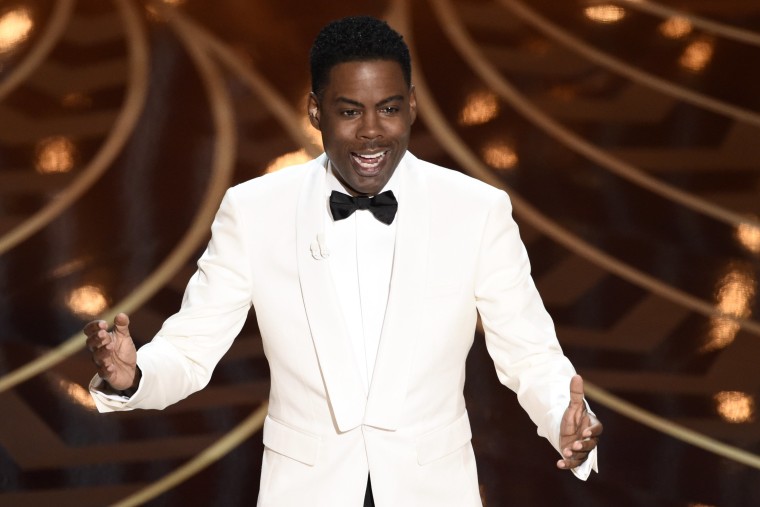All pre-Oscar buzz centered on how Oscar host Chris Rock would handle the “elephant” in the room, a predominantly white nominee base with zero nominations for actors of color, at the 88th Academy Awards.
The result: Rock delivered a monologue that skewered the traditional infrastructure of a stagnant 50s era Hollywood. In his opening line, Rock referred to the time-honored Hollywood ceremony as the “White People’s Choice Awards.” As the nominees became transfixed on Rock, their reactions made it clear that they were unsure of the appropriate response to jokes that were targeting the whitewashed nature of the industry.

Rock highlighted the familiarity of the recurring “lack of diversity” situation trying to pinpoint its specific importance in 2016. He spoke about the history of the Oscars in which for many years there were no black nominees arguing that protests didn’t happen then because “we had real things to protest; we’re too busy being raped and lynched to care about who won best cinematographer.”
His tone remained relatively humorous, but it was clear from his words that he was voicing the frustrations of a community.
“This year, in the In Memoriam package, it’s just going to be black people that were shot by the cops on their way to the movies.”
At one point, Rock emphatically stated, “Hollywood is racist. But it ain’t that racist that you’ve grown accustomed to.” He highlighted the archaic Hollywood mentality, which led him an African American comedian to stand in front of an audience of chiefly white nominees and plead on behalf of the black community, “we want opportunity; we want black actors to get the same opportunities as white actors.”
After his monologue and further into the ceremony, Rock appeared alongside Whoopi Goldberg, SNL’s Leslie Jones, and Tracy Morgan in a montage that featured the black actors parodying of some of the year’s biggest white Oscar-nominated films. After, Black Twitter erupted when Rock introduced Fox News personality Stacey Dash who wished the audience a Happy Black History month, a joke which referred to remarks made by Dash earlier in the month.
Unfortunately, Rock’s charm and humor took a downhill turn when he brought three young Asian Americans on stage to be the face of a stereotypical joke. Rock claimed the three children were PricewaterhouseCoopers accountants with Asian- and Jewish-sounding names alluding that they were good at math. He added, "If anybody's upset about that joke, just tweet about it on your phone, which was also made by these kids."
It was a low blow for Asian Americans who were shocked to see the man who was supposed to tackle the “elephant” in the room, was instead painting it a different shade.
In yet another attempt to display racial disparities in film, Rock showed a clip of his signature man-on-the-street interviews outside of a movie theater in Compton. Speaking to a pool of mainly black filmgoers, Rock asked viewers if they had seen some of the popular Oscar-nominated films, which elicited embarrassing responses that showed a sharp rift in film preferences.
At the end of the night, it seemed that if Rock’s primary goal was to make the sea of white Oscar nominees uncomfortable, he had accomplished that.
The disappointing part of his role as host was he took a cheap shot at another underrepresented group in Hollywood and perpetuated a conversation that seemed to revolve solely around Black representation rather than the representation of all minorities.
His initial delivery was blunt and humorous but as the ceremony winded down, so did Rock’s understanding of the bigger problem at hand.
